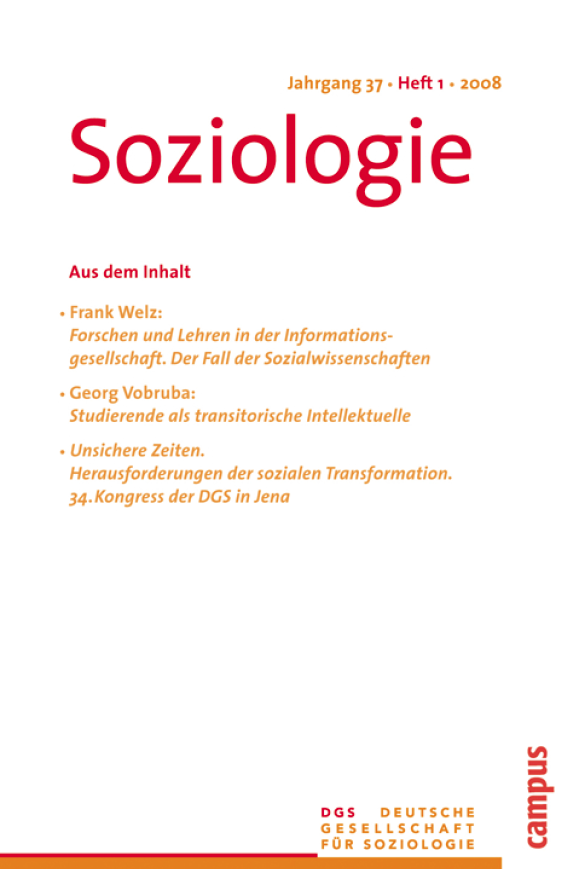Strukturierte Promotionsprogramme in den Sozialwissenschaften
Die Reform der Doktorandenausbildung und die Erfahrungen der Bremer Graduate School of Social Sciences (GSSS)
Schlagworte:
Promotion, Doktorand/innenausbildungAbstract
Die Doktorandenausbildung in den Sozialwissenschaften, bisher noch ein origi näres Recht der Universitäten, weist eine Reihe von Defiziten auf, wie hohe Ab bruchquoten, lange Promotionsdauer und schwierige Arbeitsmarkteinmündungen zeigen. Gleichzeitig liegen bisher nur wenig gesicherte Erkenntnisse über deren Ur sachen und Möglichkeiten der Verbesserung dieser Ausbildungsphase vor. Anglo amerikanische Ausbildungsmodelle lassen sich nicht ohne weiteres auf die Ausbil dungsorganisation deutscher Universitäten übertragen, so dass die auf europäischer und nationaler Ebene geforderte Reform der Doktorandenausbildung nicht leicht zu bewerkstelligen ist. Der Beitrag diskutiert am Beispiel der Graduate School of Social Sciences (GSSS) an der Universität Bremen, die in den letzten fünf Jahren erfolgreich eine forschungsorientierte international ausgerichtete Doktorandenaus bildung aufgebaut hat, wesentliche Strukturelemente eines innovativen Ausbil dungs-, Betreuungs- und Organisationskonzeptes. Anschließend werden mit Blick auf den Trend zur Einrichtung weiterer sozialwissenschaftlicher Doktoranden programme und Graduate Schools die fachlichen, administrativen und infrastruk turellen Voraussetzungen für eine nachhaltige Reform dieser Ausbildungsphase an gesprochen.
Social Sciences Graduate Education is characterised by deficits such as high attrition rates, long time-to-degree and uncertain career paths. At the same time we know little about reasons and remedies for these problems. Moreover, the well established Anglo-American Graduate School models do not provide ready-made blueprints for German universities. Thus, an encompassing reform of graduate education called for by the EU and national actors alike poses substantial challenges to the German higher education system. Drawing on the experience of five years of successful doctoral education at the Graduate School of Social Scien ces (GSSS) at the University of Bremen, the authors examine crucial elements of this novel type of structured research-oriented graduate education. In the light of the recent trend to set up a variety of graduate programs and schools we also address prerequisites – scientific, administrative and financial – for a sustainable reform of Social Sciences doctoral education.


